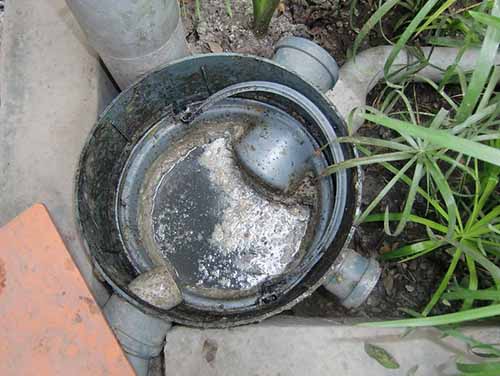Have an RV and not sure how to dispose of wastewater? Or maybe you want to install a grey water recycling system to conserve water or live off-grid?
You will need to understand the difference between grey and black water – a distinction that isn’t always as straightforward as it seems!
Grey Water vs. Black Water
Grey water and black water are both types of wastewater. Grey water is usually defined as water from sinks, baths, showers, and washing machines, whereas black water is from toilets.
Because grey water contains fewer contaminants, it can be safely reused or dumped with no or minimal treatment.
However, the definition can vary drastically depending on local laws and regulations.
Also read: Grey Water Recycling: What You Need to Know
Legal Definitions of Gray Water vs. Black Water
The legal definition of grey water varies in many plumbing and wastewater rules and regulations. For example, many states consider kitchen sink and laundry wastewater black water, whereas others consider it grey water.
It is vital that you understand these legal definitions because it may be illegal to reuse certain types of wastewater where you live, or you may be required to use special treatment methods before reusing it.
Below are some of the legal definitions of gray water.
Uniform Plumbing Code 2021 (UPC):
Many states use the Uniform Plumbing Code for their local regulations. Under the UPC, gray water is defined as,
“Untreated wastewater that has not come into contact with toilet waste, kitchen sink waste, dishwasher waste or similarly contaminated sources. Gray water includes wastewater from bathtubs, showers, lavatories, clothes washers and laundry tubs.”
This definition is pretty strict and would prohibit you from recycling kitchen sink water.
International Plumbing Code 2021 (IPC):
The IPC is another code that is used by many states. Its definition of grey water is more relaxed than the one in the IPC.
It defines grey water as,
“Waste discharged from lavatories, bathtubs, showers, clothes washers and laundry trays.”
It does not define black water but does define waste as
“the discharge from any fixture, appliance, area or appurtenance that does not contain fecal matter.”
Florida Grey Water Definition:
Florida defines graywater as
“that part of domestic sewage that is not blackwater, including waste from the bath, lavatory, laundry, and sink, except kitchen sink waste.”
Alabama Grey Water Definition:
Alabama code defines graywater as
“that portion of wastewater (sewage) generated by a water-using fixture, excluding toilet and food preparation waste from dwellings and regulated establishments. It is of similar composition but of lower strength than sewage.”
Australia EPA Grey Water Definition:
Australia has a relaxed definition of grey water vs. black water, meaning it is easier to reuse laundry water legally. The EPA defines black water as waste from toilets or urinals, whereas greywater is wastewater from baths, showers, kitchens, bathroom sinks, and laundries.
British Columbia Grey Water Definition:
Gray water is
“used household water sourced from baths, showers, bathroom basins and laundries, but doesn’t include toilet, kitchen sink, or dishwasher waste.”
Is Kitchen Sink Water Grey or Black?
Many regulations define kitchen sink waste as black water.
This is because it typically contains high levels of organic materials, including grease. It can also have high levels of chemicals from detergents, making it unsafe to reuse.
Kitchen sink greywater systems usually use settling tanks and grease traps to remove these particles before reuse.

Is Urine Grey Water or Black Water?
Under the law, urine is typically considered black water and must be disposed of in an approved sewage system.
It would be illegal to put urine in your gray water recycling system. This is why you shouldn’t pee in an RV shower.
Likewise, it’s often illegal to dump urine onto the ground. Despite this, many people still use urine for things like fertilizing crops.
Gray Water, Composting Toilets and Urine Disposal
In some places, the laws are changing to allow urine from composting toilets to be disposed of as grey water, such as by dumping it onto the ground.
However, many places still don’t address compost toilets in their laws. In these cases, you will likely be required to dump urine from your composting toilet into an approved sewage system, which means installing septic or hook up to the municipal sewer – a big obstacle if you want to live off-grid.
Also read: Best Indoor Composting Toilets
Does Gray Water Become Black Water?
Grey water can turn into black water if allowed to sit for long periods. Bacteria and other microbes can rapidly multiply in the water, bringing them up to black water levels. Generally, gray water should never sit for more than 24 hours.
Can You Dump RV Grey Water on the Ground?
Most RVs have two tanks: one for grey water and another for black water. It is never legal to dump black water on the ground.
However, it is legal to dump grey water directly onto the ground in some places. For example, it is usually permitted to dump grey water when dispersed camping on “Public” BLM lands (though illegal on BLM “Conservation” and “Wilderness Area” lands).
Even if it is legal for you to do so, dumping grey water on the ground is frowned upon for these reasons:
- It can contaminate waterways with chemicals from soaps and detergents
- Releasing large amounts of grey water at once can cause erosion
- The smell can attract animals to the campsite, causing them to become “food-conditioned” and possibly a safety threat
If you want to dump grey water onto the ground, you should follow Leave No Trace guidelines. These guidelines include digging a hole for grey water and never dumping near waterways.
https://www2.gov.bc.ca/assets/gov/environment/waste-management/sewage/onsite-sewerage-systems/what_is_grey_water.pdf
https://epubs.iapmo.org/2021/UPC/
https://codes.iccsafe.org/content/IPC2021P3/chapter-2-definitions
https://www.flsenate.gov/laws/statutes/2020/381.0065
https://www.epa.sa.gov.au/environmental_info/water_quality/programs/grey_and_black_water_discharge
https://www.canada.ca/content/dam/canada/health-canada/migration/healthy-canadians/publications/healthy-living-vie-saine/water-reclaimed-recyclee-eau/alt/reclaimed-water-eaux-recyclees-eng.pdf
https://oasisdesign.net/greywater/misinfo/


